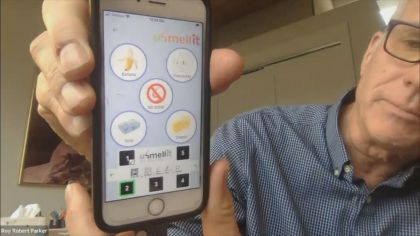According to the research published in the academic journal Obstetrics & Gynaecology, the jab had no effect on the number of bleeding days but did appear to be responsible for a short interval occuring before the commencement of the menstrual cycle in some cases.
A US government-funded study has found that women vaccinated against the coronavirus were more likely to experience a brief delay to the onset of their periods compared with those who have yet to receive their jabs.
However, any delay of fewer than eight days to the 28-34 day cycle is classified as normal and of no cause for concern by the International Federation of Gynaecology and Obstetrics.
The study’s lead author, Alison Edelman, a professor of obstetrics and gynaecology in the Oregon Health & Science University School of Medicine, said its conclusions were “very reassuring” given that the impact of the vaccines on menstruation was found to be so minimal while also providing validation for those women who had reported irregularities after receiving their jabs.
“On a population level, the changes we are finding indicate no cause for concern for long-term physical or reproductive health,” Professor Edelman said.

“However, this research is critically important. People want this information so they know what to expect when they get vaccinated. This is especially true for those individuals – including those who may be hoping to achieve, or avoid, pregnancy – where any change in the length of a monthly cycle might be troubling.”
It is hoped the findings can play a role in countering dangerous anti-vaccine misinformation, which continues to be rife on social media.
Responding to the study, Dr Christopher M Zahn, vice president for practice activities at the American College of Obstetricians and Gynaecologists, said: “We know that menstruation can be impacted by a variety of factors, including stress, lifestyle changes or a range of underlying conditions.
“The new paper published in Obstetrics & Gynaecology provides important new evidence underscoring that any impact of the Covid vaccines on menstruation is both minimal and temporary.
“We continue to stress that the Covid vaccines have absolutely no impact on fertility. People should continue to feel confident in the decision to be vaccinated and, when eligible, to receive a booster, and we encourage everyone aged five and above to get vaccinated.”
To carry out the study, the scientists examined anonymous data gathered from 3,959 users of Natural Cycles, a US Food and Drug Administration-approved fertility tracking app, whose participants were all aged between 18 and 45 and not taking oral contraceptives at the time.
Of the participating subjects, 2,403 had been vaccinated and 1,556 were unvaccinated, providing a control group to serve as a point of comparison.
Of the vaccinated, 55 per cent had received the Pfizer jab, 35 per cent had received Moderna and 7 per cent Johnson & Johnson.
Data was gathered from three consecutive menstrual cycles prior to vaccination and three after – and from six cycles in sequence for the unvaccinated.
The researchers found that, on average, participants given a first vaccine dose experienced a 0.71-day delay to the onset of their periods and those given a second saw a 0.91-day lag.
“We know that the immune system and the reproductive system are interlinked,” Professor Edelman said, speculating that an immune system stimulated by the vaccine might have an impact on the hypothalamic-pituitary-ovarian axis or, in layman’s terms, the body clock.
The timing of menstrual cycles could be disrupted by the production of inflammatory proteins known as cytokines, she hypothesised.
The researchers noted that the changes seemed more pronounced in cases when the vaccine had been administered early in the follicular phase, which occurs on the first day of the menstrual period and ends when ovulation begins.
They plan to continue analysing the subsequent cycles of their study’s participants to determine how long it takes for regular patterns to resume and to expand their research to examine the impact of other brands of Covid-19 vaccine.
Critics of the study suggested it should be further developed to factor in the role stress plays and look at the ethnic makeup of its participants.



